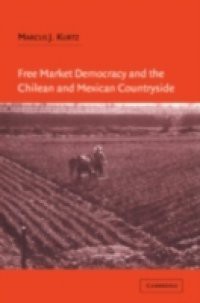This book examines the relationship between free markets and democracy. It demonstrates how the implementation of even very painful free-market economic reforms in Chile and Mexico have helped to consolidate democratic politics without engendering a backlash against either reform or democratization. This national-level compatibility between free markets and democracy, however, is founded on their rural incompatibility. In the countryside, free-market reforms socially isolate peasants to such a degree that they become unable to organize independently, and are vulnerable to the pressures of local economic elites. This helps to create an electoral coalition behind free-market reforms that is critically based in some of the market's biggest victims: the peasantry. The book concludes that the comparatively stable free-market democracy in Latin America hinges critically on its defects in the countryside; conservative, free-market elites may consent to open politics only if they have a rural electoral redoubt.

